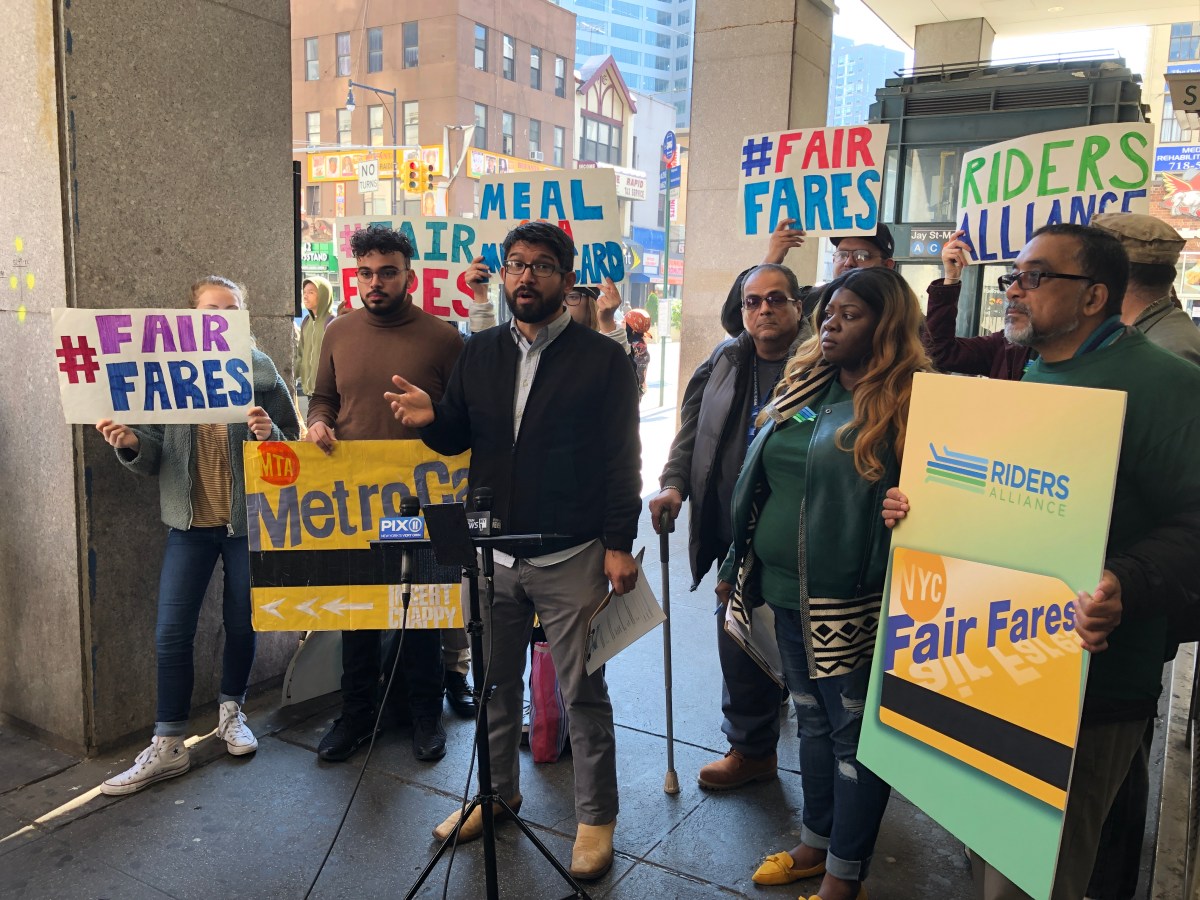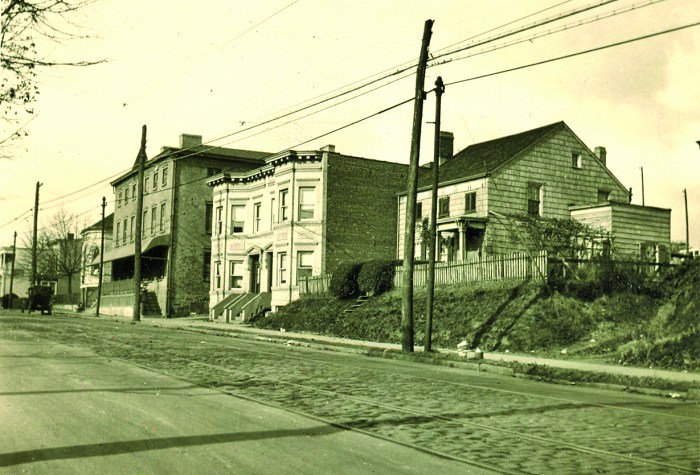Transit advocates on Wednesday sang the praises of the Fair Fares program saying that it prevents low-income New Yorkers from being forced to choose between “a MetroCard or a meal.”
City Council Members Carlos Menchaca and Ydanis Rodriguez joined the Riders Alliance advocacy group outside the Jay Street-MetroTech subway station on Wednesday to urge the city and MTA to reach more of the estimated 750,000 city dwellers who endure poverty and would be eligible for half-price MetroCards.
The limited-enrollment pilot program will expand in January, according to Rodriguez, who cited transportation woes that have effect on his Upper Manhattan residents.
Menchaca also spoke about the lack of affordability of transit for those on hard economic times.
“Public transportation should be accessible to the public, not just the rich,” Menchaca said at the rally.
One NYCHA resident, Pedro Valdez-Rivera, said that the discounted MetroCard has taken an enormous financial strain off his shoulders.
“Fair Fares has allowed my family to save money each month,” he said. “The money I save can now be applied to buying food and paying household bills.”
Menchaca also acknowledged the great number of affordable housing residents around the city.
“NYCHA alone holds a massive population,” he said, noting that his own district holds the largest NYCHA project in Brooklyn — the Red Hook Houses.
Menchaca, who chairs the City Council’s Immigration Committee, said that half-price MetroCard should also be made available to undocumented residents.
“They’re no different than any other constituents,” he said. “They have jobs, they have medical needs.”
Menchaca also observed that the Fair Fares policy gives students one less thing to keep on their minds.
City Tech student Amine Amine pointed out that the regular cost of a monthly MetroCard is equivalent to about 11 meals he could have bought prior to qualifying for Fair Fares.
“It’s very difficult to focus on school when I am worried about how I’m going to pay to get there,” he said.
The Riders Alliance also surveyed over 150 commuters, learning that as many as 88 respondents were living at or below the federal poverty line.
That survey also found that many support the expansion of multi-lingual support for program applicants and users and other efforts to make it easier to replace lost or damaged Fair Fare MetroCards.
Transit advocates also urged the MTA to advertise Fair Fares even more. Currently, an overwhelming amount of fare evasion ads are plastered throughout the subway system along with accompanying enforcement.
In response, Shams Tarek of the MTA said. “we strongly support the City’s Fair Fares program and look forward to seeing its expeditious expansion to more eligible New Yorkers.”


























